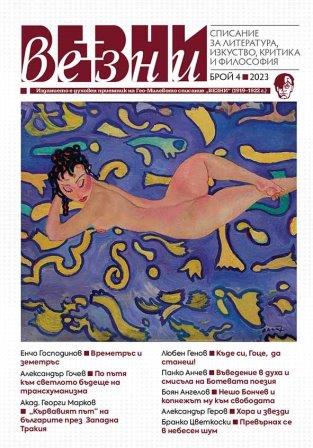
We kindly inform you that, as long as the subject affiliation of our 300.000+ articles is in progress, you might get unsufficient or no results on your third level or second level search. In this case, please broaden your search criteria.

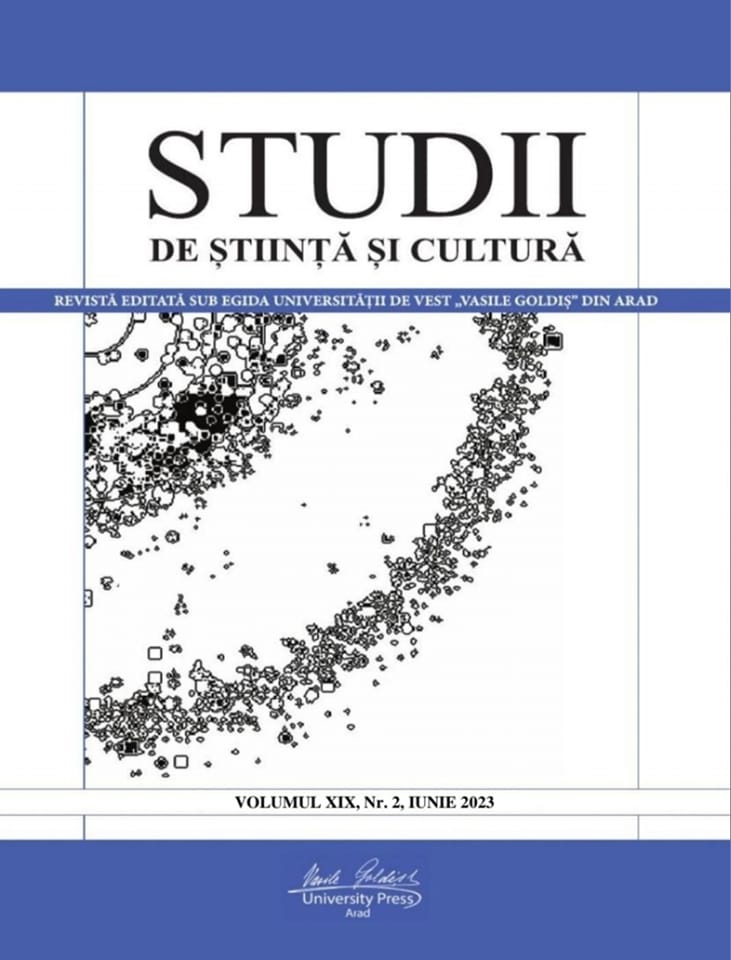
Nicolae Bălcescu's correspondence provides us with valuable material on the configuration of the norms of literary language in Wallachia between 1838 and 1852. The letters reveal a series of linguistic features (phonetic, morphological and lexical) that are important for the history of the Romanian literary language in the 19th century, a century that was primarily identified with the confrontations related to the creation and imposition of the supra-dialectal norm, which acted to remove from the language strictly regional and archaic elements. We also note the writer's contribution to the development and modernisation of literary vocabulary in general at a time when all the problems of literary language were subordinated to the idea of transforming it into a modern instrument in terms of its expressive possibilities and national unity, responding to the needs of an evolving culture.
More...
The rich imaginative world promoted by the Southeast European literature abounds in frivolous female figures, the beautiful ones touched by the same tragedy that marked this space. Part of the structure of a collective, the frivolous women are characters met with conflicting attitudes: either they are marginalized or stigmatized by society, or they are accepted, through a compromise, as a necessary evil. Mysterious, but also extroverted, they are repudiated and assimilated at the same time, thus becoming outcasts in a space dominated by an archaic worldview which rejects sexuality and, in general, any expression of femininity. Regarded as “carpe diem” women, they represent a type of femininity that lives in the moment and rejects, through attitude at least, the old-fashioned mentality of society.
More...
In 2016, Tatiana Țîbuleac publishes her first novel, Vara când mama a avut ochii verzi, a novel that focuses on interpersonal relationships. The male character Aleksy is defined by his relationship to the world he knows. Aleksy highlights the category of the outsider. Therefore, the character's way of being is outlined through the memories. Aleksy is defined by a marginal identity, given his childhood and adolescent experiences. Aleksy is the character who, through remembrance, seeks reconciliation with the past. Thus, the novel follows Aleksy's transformations, which are supported by the dialogue he has with his mother.
More...
The aim of this research is to analyse the intriguing figure of Zogru, the eponymous charachter of Doina Ruști’s novel. Unlike the vampires from the traditional culture, this quasi-vampire, rather a spirit than a monstrous appearance, Zogru is the perfect sample of his creator’s type of fantastic. Humanized, caught between history and time, the green spirit deconstructs the viral image of the blood-addicted Dracula, showing that even a spectral presence can be a part of the world’s mesmerizing creation. Zogru is not afrid of garlic or of the sing of the cross, but the only element of the fantastic prop that is able to punish him is the platan wood. The narrative and imaginary economy of this novel is easily attached to the magical realism, fictional frame that allows literature to live between reality and phantasy.
More...
Learning one or several foreign languages has become more than just a necessity in the last few years. This is the reason why we are searching for the best teaching methods. Among these, every teacher must be looking for the suitable ones for their students. In this article, I am referring to the linguistic games, because in the beginning, they were not used very often, only in the extra-curricular activities. After they proved how efficient they are for a proper communication in a foreign language, more teachers began to introduce them in their courses.
More...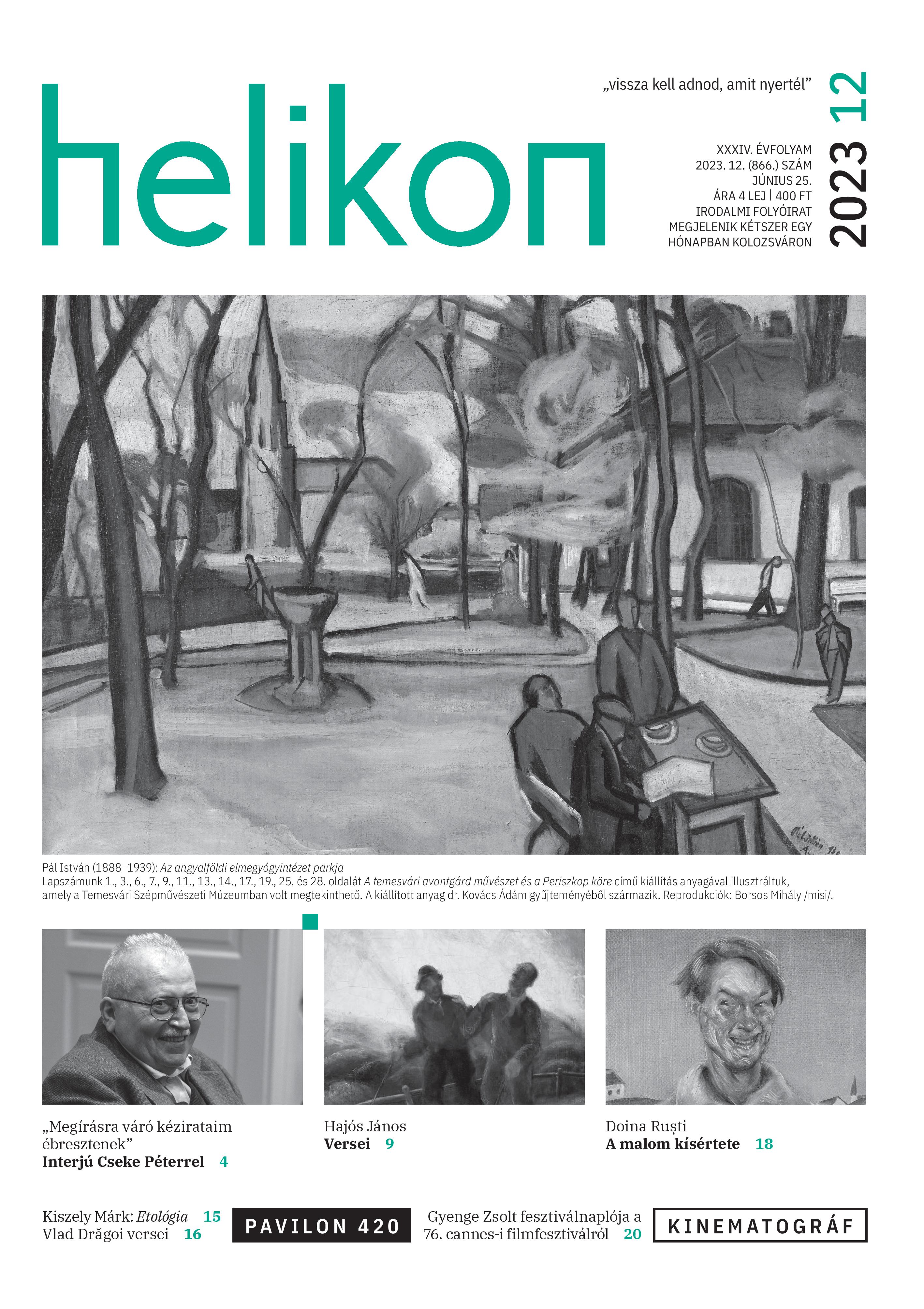
Essay by Péter Cseke on the works of Géza Páskándi.
More...
Inspired by the remarkable personage of Ukrainian President Volodymyr Zelensky and his transition from comedian and actor to an inspirational leader admired around the world, this paper will examine the similar fate of Hal/Henry V in Shakespeare’s second Henriad. The focus will be on Henry’s comic “career”, prior to ascending the throne, “slumming” with Falstaff and his followers, in particular in Henry IV Part One. There will be an attempt to demonstrate how Henry, contrary to expectations, makes profitable use of his time to “learn the ropes”. Henry in his interactions with Falstaff and others employs a wide range of comic techniques: jokes, insult comedy, imitations, political satire, etc. In contrast, however, with Zelensky who has bravely rallied his country and inspired the world with resistance to a larger aggressor in a defensive war, Henry V does the exact opposite invading neighbouring France on the most flimsy of pretexts. Although lionized in many productions as a great military leader, icon of Englishness and man of the people, this paper will argue for his ultimate failure as a leader, failing to heed the lessons of his comic “apprenticeship”, in stark contrast to Zelensky.
More...
The paper analyses verbal structures employed in 16 translations of Psalm 20 coming from Old, Middle, Early Modern and Late Modern English periods, spanning over ten centuries, with a view to determining the principles of mood selection in each of the psalter translations and observing any diachronic shifts in this respect. The major finding of the study is that grammatical choices seem to lie at the intersection of language change and the type of translation aimed at by the translators rather than reside in the source text underlying the rendition. The changes in the grammatical structure of the language inevitably surface in the text of the translation unless they are blocked by the overriding principle of formal faithfulness to the original, resulting in such marked choices as adherence to the subjunctive in main clauses in a Late Modern English rendition. The paper is a preliminary step in a larger diachronic study of the subjunctive in English and its findings suggest that it is possible to investigate the change in mood selection also on the basis of linguistic material gathered in biblical translations.
More...
This article looks at two turn-of-the-century neo-Victorian works – Tipping the Velvet (1998) by Sarah Waters and Dan Leno and the Limehouse Golem (1994) by Peter Ackroyd. Both novels offer a detailed depiction of cross-dressing and theatre in the latter part of the nineteenth century and its effects on the main characters. The article analyses each work individually to sufficiently examine significant relationships and their impact on the main heroines’ character formation. Furthermore, it looks at gender performativity in the Victorian setting and the unique environment of the music halls. As demonstrated, the examined characters achieve liberation by occupying both male and female spheres and by refusing to propagate the strict rules encompassing gender binaries. As a result, both characters are able to freely explore their possibilities while wearing male clothes and arrive at a more authentic and well-rounded image of who they are.
More...
This contribution examines nine lessons from the Office of the Dead, foundin a group of English translations of the Book of Hours. The text of the lessons comesfrom six chapters of the Book of Job and therefore constitutes scriptural content ofthis medieval prayer book. Selected for this analysis are four primers as well as thetwo vernacular versions of the Bible available at that time, namely the Early andLate Version of the Wycliffite Bible (cf. Dove 2007). As far as the primers are concerned, three of them have received an edition, while New Haven, Yale UniversityLibrary, MS Beinecke 360, which is examined in this contribution, still remains to beedited and analyzed in depth. This study attempts to establish the textual traditionof its non-psalmic scriptural passages as well as that of other primers. This will beachieved by performing comparative analysis expressed by objective mathematicalvalues, with the results presented in tabular form and illustrated with fragmentsof the actual text. The analysis performed in this paper will shed some light on thecomplicated history of scriptural content of the selected English primers.
More...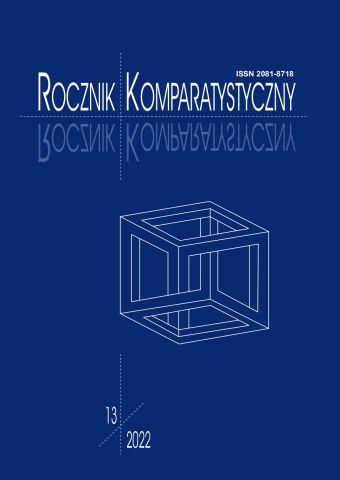
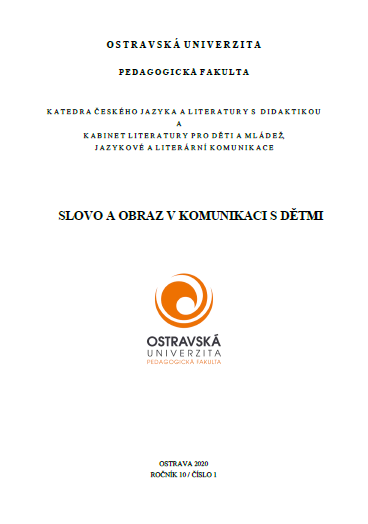
The paper presents the results of a survey which aims to determine the extent to which students have absorbed literary theory by the end of their compulsory school attendance period, as well as to determine the level of their knowledge of terminology related to figurative designations, and their ability to apply their knowledge when working with an artistic text. The survey responds to the unclarified content of literary education at upper primary schools. It also provides suggestions for primary school teachers, and the results can also be used in undergraduate preparation of future Czech language teachers.
More...
Článek se zabývá efektivní adaptací žáků s odlišným mateřským jazykem v online prostředí, a to v kontextu distančního vzdělávání. Východiskem pro článek bylo doporučení ministerstva školství k realizaci distančního vzdělávání pro jarní období školního roku 2019/2020.
More...
The relationships between comparative research and traductology are interconnected, because comparative studies use translations as a method of obtaining knowledge about other systems, and the results of comparative research are a source of knowledge for translation. These connections occur both in translating and comparing the law between different legal systems and languages, and in comparing multilingual literature. Similarly, translation work and comparative work, although starting at the linguistic level, go beyond it, in order to establish the cultural context of the text. The critical moment of this thought process is a specific linguistic “profit and loss account”, forced by the transfer of meanings from one language to another. This transfer can be compared to crossing borders: in relation to the law they are the borders of the empire, and in relation to literature – the borders of the world. In these empires and worlds, translators and comparativists play special cultural roles, mediating the transfer of meanings and symbols between the authors of texts and their recipients. Each of these roles, if played well, requires effort, courage, and understanding between different empires and worlds. The metaphor of the crew of the ship, on which the Argonauts set off on a “linguistic expedition”, believing that they will bring “the golden fleece”, that is, the same meanings in different worlds, defines the framework of the presented sketch.
More...
On February 24, 1920, Adolf Hitler announced the 25-point program of the National Socialist German Workers’ Party (German: Nationalsozialistische Deutsche Arbeiterpartei, NSDAP). Article 19 of the program proclaimed: “We demand that Roman Law, which serves a materialistic world order, be replaced by a German common law” (German: Wir fordern Ersatz für das der materialistischen Weltordnung dienende römische Recht durch ein deutsches Gemeinrecht). The presence of Roman law on the Nazi agenda aroused surprise from the beginning. The more time passed, the more sophisticated attempts were made to find its cultural-ideological basis. As a result, a complicated ideology was added to it post factum. Meanwhile, it cannot be ruled out that the inspiration for Hitler and his aides was not some great political tracts, but a primitive anti-Semitic lampoon – Judas Schuldbuch: Eine Deutsche Abrechnung. The book, under the pseudonym Wilhelm Meister, was published by a minor financial official named Wilhelm Meister in 1919.
More...
Imagination can be associated with the innocent capacity to contemplate on either non-existent or absent objects, which for some reason or another seem to be nonexistent in our immediate or actual surroundings. It enables us to escape the confines of instantaneous reality, thereby liberating us from the subjection to our immediate surroundings and transferring us to transient worlds in our minds, which are somewhat cut off from actuality. With respect to this suggested nature of the imagination, some may argue that the ultimate power of imagination lies in its ability to empower the subject with a profound sense of freedom, that is innately strong enough to break the limits of what is actual and what is real. While on a personal level, imagination gives one the ability to traverse bounds of immediate reality; on a macro/community level, imagination can be very toxic for some. This paper will look at different real and fictional literary examples, while journeying through Sartre, Husserl, Castoriadis and Ricouer’s ideas and theories of imagination, and, trying to map out the essential aspects of the needs and formations of identities of different marginal individuals/communities. Along side that, it will also try and connect the different ways of survival and perseverance that people find via imagination.
More...
This paper explores the connections between Iain Sinclair’s 2015 travelogue Black Apples of Gower and the Merlin legend. Despite the fact that, on the surface, Sinclair does not refer to the early Welsh merlinistic tradition, on closer inspection both share what M. Wynn Thomas has described as “hidden attachments” – cross cultural connections and experiences between the two literatures of modern Wales. The archaic bedrock of the Merlin legend and the alchemical imagery in Sinclair’s book are both rooted in the mythico-ritualistic complex of symbolic regeneration based on the repetition of the act of original creation. Both Merlin and the alchemical process involve an ontological transformation which is mirrored in Black Apples of Gower by the transcendence of textual and medial boundaries: a complex network of intertextual allusions and word-image relationships (ekphrases, reproductions and illustrations). By exploring these relationships, along with the merlinistic and alchemical imagery present in the text, I argue that the work employs the strategy of what I call textual nigredo – a process of intertextual and intermedial transformation. The affinities identified between the Merlin legend and Sinclair’s travelogue provide an argument for seeing Iain Sinclair as a Welsh writer and shed new light on the links between the Welsh-language literary tradition and English-language Welsh writing which may be pursued further in the future.
More...